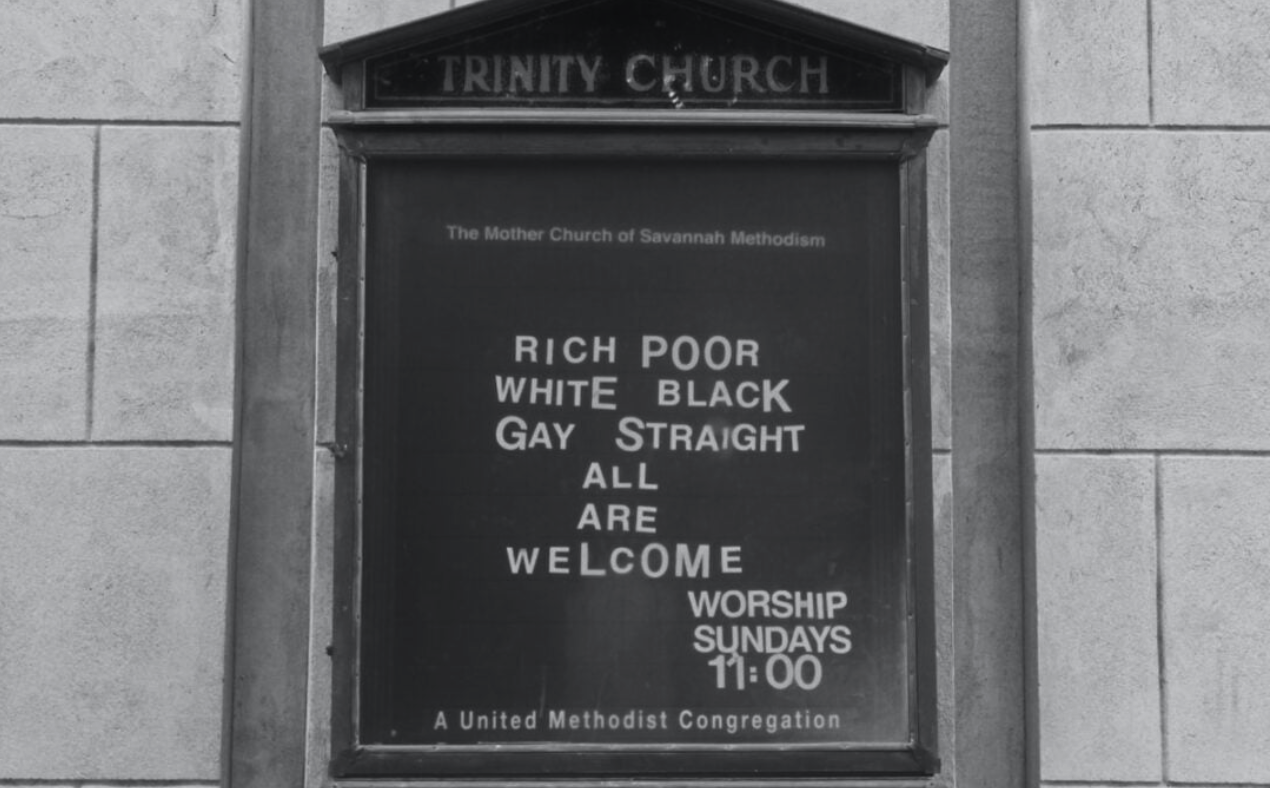LGBTQ+ Christians Continue to Feel Sting of Judgment, Exclusion

The history of the Christian church includes many examples of addressing who belongs and who does not belong, starting at the very beginning.
Despite how clear Jesus was that women belonged, that Samaritans belonged and that lepers belonged, the early church struggled with whether or not Jesus came for the Gentiles as well as the Jews.
That seems obvious to us now (as most reading this are likely Gentiles, not Jews), but it was a matter of contention until both Peter and Paul understood God’s inclusion of all and spoke up and spoke out.
Phillip’s encounter with the Ethiopian Eunuch gave a concrete answer to the question, “Is there anything preventing me from being baptized?”
The answer, to someone barred from entering the sanctuary because of sexual difference, resounds through the years but often not through the church.
As a member of Protestant, often Baptist, congregations through the years, I have participated in the use of the words “Brother” and “Sister” to refer to other Christians.
If we are truly family, what does it mean when we cut off our siblings? When we make them hide or leave the family because they are different and unwelcome?
As a social worker, I have worked with homeless youth whose families kicked them out when they came out as gay.
I have struggled to find foster homes for young people who are gay and without a family to care for them. And I have reconsidered employment in Christian agencies who will not work with or serve LGBTQ+ persons.
Denominations and congregations, religiously affiliated organizations and Christian universities have struggled for decades with the question of LGBTQ+ inclusion.
As a result, our LGBTQ+ Christian kin have felt the sting of judgement and exclusion, too many times internalizing the stigma and rejection that then turns into self-hate and suicidal ideation.
Sometimes they hid who they were, often leaving the church and sometimes their faith.
During the early days of the AIDS crisis, a Christian colleague shared with me that AIDS was God’s judgment on homosexuality.
There is nothing in my experience with God that suggests that there is anyone beyond the love of God. I also wondered about the logic that failed to recognize that the lowest risk group for AIDS were lesbians.
Criticism in the absence of critical thinking may be more closely correlated with judgment than we realize. It is possible for us to have different understandings and still live together with respect and care for each other. We must do better.
In the past several years, I have been doing research with congregations who are engaged in discernment conversations to determine whether and how they will include LGBTQ+ Christians and, in some cases, whether they believe that persons can be Christian and LGBTQ+.
There is nothing in my experience with God that suggests that there is anyone beyond the love of God."
These churches have been exploring what their policies and practices will be with respect to LGBTQ+ ministers, lay leaders in the congregation, participation in ordinances including baptism, marriage, adoption and other church-sanctioned times of blessing.
Churches who have resolved these questions for many other marginalized groups of persons (think divorced persons in the 1970s and 80s, for example) may still not have addressed these questions for LGBTQ+ persons.
This is true in universities with Christian denominational affiliations as well.
In my own university, LGBTQ+ students have repeatedly requested unsuccessfully to have an approved student organization – a safe place to meet together and a way to participate in university activities.
Some faculty and academic units have provided informal support and space, but the experience of marginalization persists.
There are religiously affiliated universities that have resolved this and still upheld their student policies/codes of conduct by recognizing that students are adults and there have always been students with their own codes of conduct. That does not seem to be a barrier to a number of student groups who are legitimized in the university setting.
When policy cites the biblical understanding of sexuality and the concept of fidelity in marriage, we recognize that sexual activity outside of marriage is not unheard of in university settings, including in Christian universities. That has not been a reason to withhold approval of student organizations where such activity occurs.
As a faculty member in a professional school, I prepare our graduates to work with all persons with respect and without the requirement that clients have the same religious affiliations, beliefs or circumstances.
As a Christian, my faith requires that kind of love and care.
As a social worker, my profession requires those ethics and behavioral standards.
As a teacher, my role requires that kind of critical thinking and preparation.
I do not pretend to know all of the answers. I do commit absolutely to love God with all of my heart, soul and mind and to love my neighbor as myself.
It means all. It means each. And it matters.
This story was originally published by Good Faith Media.